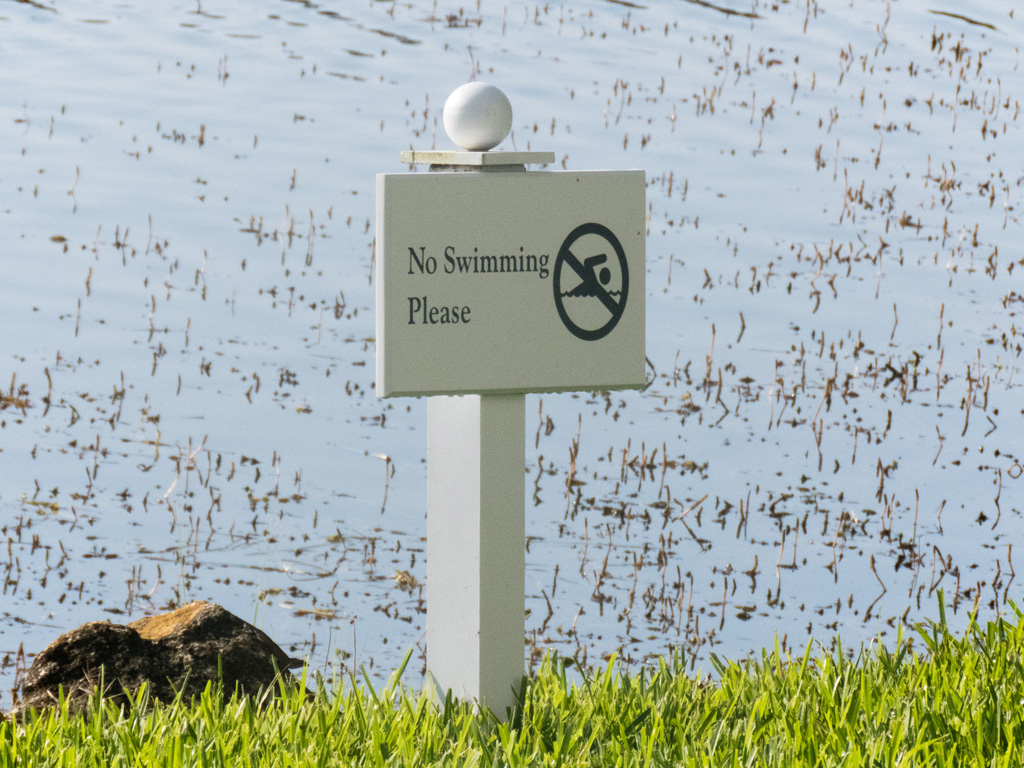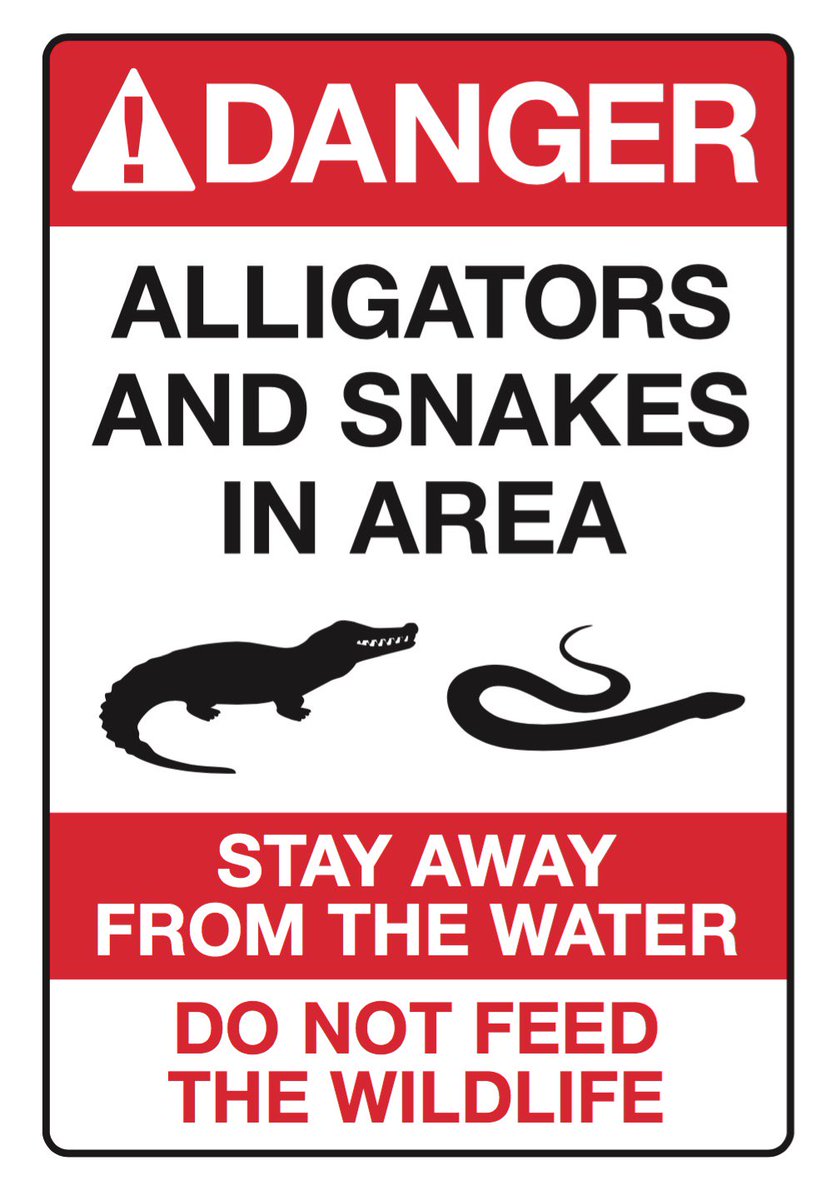I spent most of Tuesday night crying, constantly refreshing my news feed, hoping that the news trickling in wasn't true – that it was a hoax, a mistake, a case of internet sensationalism. Unfortunately, it was all too real.
A little after 9:00 PM Tuesday June 14,
2016, two-year-old Lane Graves was snatched by an alligator outside
of Walt Disney World's Grand Floridian Resort and Spa and dragged
into Seven Seas Lagoon.
The mainstream news wasn't reporting it
yet, so I was getting the details and news updates from a few Disney
fan forums, posted by locals and guests who were on-site as events
unfolded. As I read through the posts, tears streaming down my
face and my mind constantly picturing the nightmarish events like a
clip from a horror movie that was playing its own hellish loop in my
brain, I realized that perhaps even more than news updates or
expressions of fear, hope, or condolence, I was seeing one
overwhelming theme: blame.
Blame the parents: Why weren't they
watching their child? Who lets their baby play in alligator-infested
waters? What was a child that young doing out of bed at that time of
night, anyway?
Blame Disney: Why are there alligators
on Disney property? Why weren't there warning signs of the danger?
Now that more of the facts are in, I
think it's time to review what really happened. I'm going to try to
be as fair and unbiased as I possibly can, but spoiler alert: There
is a party I find somewhat culpable in this tragedy.
From what I understand, here's how the
situation unfolded: Matt and Melissa Graves from Elkhorn, NE had
taken their children (four-year-old Ella and two-year-old Lane) down
to the beach of the Grand Floridian to watch Zootopia, that
night's complimentary outdoor movie screening. Lane was a little
restless, so Matt took him for a stroll. The were walking together
near the water's edge (Lane was maybe a foot in the water, where it's
about three to four inches deep) when an
alligator sprang from the water and clamped its jaws around the boy.
Matt Graves tried to rescue his son, but was not able to. He received
minor injuries as he wrestled with the seven-foot alligator that had
his son in its jaws. Melissa also dived in to help, but to no avail.
In a few seconds, their son was gone forever.
So,
to review, the parents were right there. The child was not
unattended. It was just a fight the gator was destined to win.
Further, it was not irresponsible parenting that had them on the
beach at night; they were there to watch a Disney-sponsored event,
surrounded by other families with young children.
Here's
the stickiest point, and the one where fingers seem to be pointed in
every direction: Why was the child splashing in an alligator-infested
lagoon? Should the parents have been more aware of their
surroundings, or should Disney have done a better job of warning
them?
For
the record, there are “No Swimming” signs on that beach:

Is
this an adequate warning of the potential dangers? Well, when
it comes to alligator attacks, courts in Florida have held that a
swimmer's disregard of "No Swimming" and other warning
signs were the sole cause of the serious injuries, thereby relieving
the property holder of responsibility. There's also the ferae
naturae
doctrine, in which wild animals are presumed to be owned by no one
specifically but by the people generally. Simply put: Under the law,
wild animals are unpredictable and uncontrollable, and a property
owner is not responsible for their actions (unless they are being
kept as pets). And in Florida, the law does not require a landowner
to anticipate the presence of or guard a guest against harm from wild
animals.
Is
this enough? Could the parents have known that “No Swimming”
means “stay away from the water entirely”? Most people from
Florida with whom I have spoken think so. The old adage in Florida is
that if it's bigger than a puddle, it's undoubtedly home to gators.
They're ubiquitous. (And not just gators; be aware of snakes and
brain-eating amoeba. Yes; I'm serious.) But could parents from
Nebraska be expected to know this? I'm from Ohio, so when I see “No
Swimming”, I assume it's either because of boat activity in the
area or lack of a lifeguard. (Or because pollution may be so bad
that the body of water may catch fire, but that's another story
entirely.) Do we Northerners know there are snakes and alligators in
Florida? Of course. Do we expect to encounter them in as heavily
populated and traversed an area as Walt Disney World? That's a
tougher question. I do, but I'm a Walt Disney World and Florida nut.
I'm also a big believer in knowing my enemy and trust me: Snakes and
alligators are high on my enemy list. And I've seen snakes and gators
with my own beady little eyes at Walt Disney World. I'm aware and I'm
scared appropriately cautious. But I'm sure many people happily
ensconced in the “Disney bubble” prefer not to ponder these
possibilities.
Should
Disney have done more to make guests aware of the issue? As I
mentioned before, Florida courts have previously been satisfied with
the “No Swimming” signs. It's also worth noting that in its
45-year existence, no other WDW guests have been killed by
alligators. The only other reported alligator attack I've been able
to find was 30 years ago. (There have been some snake attacks, but
I'm trying not to think about those – particularly because one of
the most frequent spots where snakes are spotted is near the
Treehouse
Villas at Disney's Saratoga Springs Resort and Spa,
where I'll be staying on my next trip.)
It's
worth noting that Disney is taking steps to try to keep this from
happening again. They are putting up small fences along the beaches
(designed to keep guests out of the water, obviously not made to be
gator barriers):

They're also erecting more explicit signs:

And
as for keeping alligators (and snakes) off Disney property? Simply
put, it can't be done. Disney does work with the Florida Fish and
Wildlife Conservation Commission to remove any alligators over four
feet that are spotted, but Florida is one big swamp and there's
simply no way to keep them out. If you choose to visit Florida,
snakes and alligators were there first, and they aren't leaving.
Why
do we look to blame anyone? I think it's fear. I believe that deep
down we think that if someone brought this upon themselves, we can
find a way to make sure it doesn't happen to us. But I don't think it
was the Graves' fault, and I don't think it was Disney's fault.
There
is a group that I think may have some culpability, however: other
Disney guests.
I've
seen it more times than I can count: guests thinking it's cute to
feed the wildlife around WDW. They're told not to:
But
they don't listen. Further, it's illegal. According to Florida
Statute 372.667, feeding a wild alligator is a misdemeanor of the
second degree.
According to Disney Cast Members, some of the most
egregious violators of this law are the well-heeled guests staying in
the Bora Bora Bungalows on the water at Disney's Polynesian Villas &
Bungalows. One told The Wrap Wednesday that several CMs have become concerned about guests feeding alligators over the past fourteen
months. Guests who stay in the bungalows
have access to the wildlife at the Seven Seas Lagoon and apparently frequently feed the alligators that swim there.
Another
common saying in Florida: “A fed gator is a dead gator.” You see,
once an alligator starts to associate humans with food, all bets are
off. It's going to lose its natural reticence to interaction with
humans, and a tragedy is bound to occur. At that point, the gator
will have to be caught and killed. So even if you don't get attacked
by the gator you fed, you may be setting up a chain reaction that will
lead to tragedy.
I
was going to posts videos and pictures of alligators and snakes at
Walt Disney World along with some stories of snake attacks, but this
article is too long already. Please Google the subject if you're
interested. Suffice it to say, there's plenty of examples out there.
And
please, don't blame the Graves. And don't blame Disney. Just be
aware, be safe, and don't feed the wildlife!